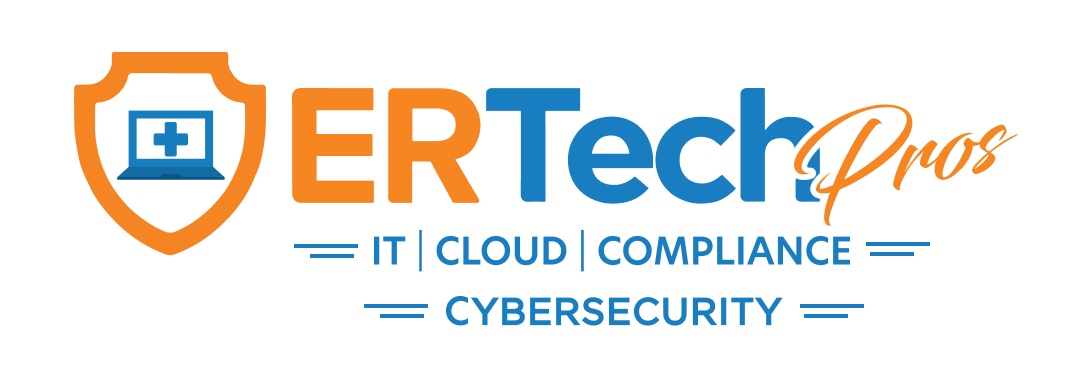Technology is evolving at an unbelievably high speed. This is especially true in the healthcare sector, where technology has reshaped—and continues to reshape—how healthcare facilities operate, communicate, and deliver quality patient care.
In the past years alone, we’ve witnessed how technological innovations in vaccine development, telemedicine, and cloud computing have made healthcare more affordable, more sustainable, and more accessible.
Unfortunately, the break-neck speed at which technology now moves doesn’t just bring good news. It has also allowed cybercriminals to access tools to infiltrate and exploit organizations, and healthcare facilities are among their most prominent targets.
The Need to Outpace Cyber Threats
With the business of cybercrime booming, healthcare organizations everywhere feel the need and pressure to staunchly protect their patient data and reduce their risk of falling victim to increasingly common ransomware attacks.
However, when you’re on your own, outpacing and outsmarting cybercriminals is an uphill (and expensive) battle. Your clinic’s IT team—if you even have one in the first place—will be facing the well-oiled machinery of cybercrime.
The solution? Access to cybersecurity expertise. Hiring a cybersecurity team for your healthcare practice is an excellent way to avoid cyber threats, but it entails a significant expense—something you may not have the resources for.
A more effective, more practical, and more cost-efficient solution would be outsourcing your clinic’s cybersecurity needs and partnering with a reliable cybersecurity company.
Why should you partner with a cybersecurity company?
Besides saving money, there are plenty of reasons why partnering with a cybersecurity company is the best move for you and your practice. Here are some of them:
You avoid burnout among your in-house IT staff.
According to a 2021
study by Spok, 53% of IT staff report a considerable increase in their burnout levels since the COVID-19 breakout.
Because of the various restrictions brought about by the pandemic, healthcare facilities all over the world suddenly leaned heavily on
technology to meet operational needs—and IT staff found themselves bearing the brunt of this urgent shift.
Needless to say, your IT staff is likely caught in the precarious balancing act of tasks way beyond their workload and expertise. This can easily lead to IT burnout, which you would want to avoid at all costs.
By outsourcing cybersecurity tasks to cybersecurity experts, your IT team won’t need to worry about the jobs that fall beyond their scope—they can focus their full attention on those that do. They can also work on more long-term, business-building initiatives.
Partnering with a cybersecurity company can help you ensure that your IT team is happy, productive, and focused.
You can make sure all cybersecurity bases are covered.
Let’s be clear, IT expert doesn’t automatically mean
cybersecurity expert. When you assume that your IT staff can squeeze your practice’s cybersecurity in their time and responsibilities, you may be spreading your team too thinly. This can be a dangerous mistake.
Not only can spreading your team too thinly lead to IT burnout (as mentioned in the point above), it can also lead to cybersecurity loopholes.
Undetected cyber threats, unmonitored network traffic, and unpatched computer systems are just a few vulnerabilities that malicious actors can exploit and use to compromise your entire practice. Don’t risk it.
Make sure all your cybersecurity bases are covered by partnering with a trusted cybersecurity company that can supplement and augment your current IT workforce.
You can have an updated incident response plan.
In the world of cybersecurity, perimeter defense is critical. But, unfortunately, it’s no longer enough. In the event that a cyber attack does get through your defenses, your practice’s IT staff needs to be equipped with the necessary knowledge on what to do and how to react—this is precisely what an incident response plan is for.
If you don’t have one yet, your cybersecurity partner can create one for your practice.
By outsourcing your practice’s cybersecurity, you’ll have an entire team of cybersecurity experts, ensuring that your organization knows how to detect, respond to, and recover from a cyber attack.
They’ll make sure that your incident response plan is designed and updated according to your practice’s specific cybersecurity needs as well as the emerging threats that your organization may be vulnerable to.
You take a proactive approach to cybersecurity.
While knowing how to respond and react to a cyber attack is vital in every healthcare practice, a reactive stance is not ideal in cybersecurity. Healthcare practices need to take a proactive approach instead.
The end goal isn’t to know exactly how you can respond to cybersecurity incidents but to make sure those incidents don’t happen in the first place.
Your practice can move toward a more proactive approach in cybersecurity by partnering with experienced cybersecurity professionals. If you take things into your own hands or do everything in-house, you may miss out on knowing the latest technologies and the most recent vulnerabilities.
A third-party cybersecurity company, however, is always on the lookout for the latest developments in the industry they specialize in. Partnering with them gives your practice access to the ideas, latest trends, and best practices they share among their networks—a treasure trove of cybersecurity knowledge you would otherwise miss.
You meet compliance requirements.
In the healthcare industry, organizations need to take their cybersecurity to a whole new level. You can’t afford to be
just
secure. You need to be HIPAA-level secure.
Your medical facility isn’t just implementing cyber precautions because you’re afraid of getting hacked. You’re doing it because you know that failure to do so can result in legal, financial, and reputational repercussions.
You can’t take any chances when it comes to
HIPAA compliance, so you must entrust your IT system and devices to professionals who specialize in healthcare cybersecurity. By partnering with an established cybersecurity company that understands your HIPAA compliance needs, you can rest assured that every single piece of patient information you hold is secure and protected.
How do you find the right cybersecurity partner?
Now that you understand how important it is for your practice to partner with a trusted cybersecurity company, the next question would have to be:
How do I find the right cybersecurity partner for my healthcare practice?
Here are a few things you can consider to help you find the right one:
You need a partner (not just a vendor).
There may be hundreds of IT companies to choose from in your area, but it’s important to remember that IT companies don’t always offer cybersecurity services. They may offer cybersecurity software solutions, but they likely won’t have the expertise, the support, and the means to monitor your network for you.
These types of companies are great if you’re looking for a software vendor, supplier, or reseller, but they simply won’t do if you’re looking for a cybersecurity partner.
To know if a company is the right cybersecurity partner for your practice, look closely at the types of
services they offer and the kinds of technologies they employ.
Can they do more than just sell you software solutions? Can they effectively manage, monitor, and maintain your network’s cybersecurity for you?
You need custom cybersecurity solutions.
Every organization’s cybersecurity needs are unique. So when it comes to your practice’s cybersecurity, a one-size-fits-all approach is something you should stay away from.
Partner with a cybersecurity company that offers services tailored to meet your practice’s specifications and needs. Off-the-shelf solutions are unlikely to come from established cybersecurity firms.
They should also take your organization’s size into consideration. You wouldn’t want them selling you unnecessary, redundant, or inadequate software and devices.
Experience and expertise matter.
As a healthcare facility, you’re going to need your cybersecurity up to HIPAA standards. Whether it’s your perimeter defense, cloud environment, or IT processes, you know for a fact that it’s unlikely for an ordinary IT company to give you the security that you require.
Partner with a cybersecurity company that has the experience and expertise in healthcare IT and in HIPAA compliance. Check how long they have been in the healthcare IT industry. You can also ask them about the healthcare practices they have worked with or have catered to...which leads us to our next point.
Review and feedback matter, too.
A cybersecurity firm’s company website and marketing material can only say so much about the quality of its service. Our advice is this: Get feedback about their work from where they actually do their work...their clients!
You don’t even have to contact their clients. If they have a reviews or
testimonials page on their site or social media page, you can start there. If they have a YouTube channel, they may have a
playlist of their client feedback as well.
Don’t ignore red flags.
When you’ve found a company that appears to have some of the characteristics you’re looking for in a cybersecurity partner, you’re likely tempted to get the contract and sign up with them right away. In such situations, it’s hard to keep looking at other options with an impartial and open mind.
However, keeping an eye out for red flags is an important part of the process. If you spot one, don’t ignore or try to justify it. Ask questions about promos, services, or offers that you think are confusing or misleading.
Examples of possible red flags include:
- They sell you products or services without doing any type of assessment or evaluation on your IT network.
- They refuse to show you the specifics of what you’ll be paying for.
- They recommend you settle for non-HIPAA compliant solutions if they don’t have the ones you need.
Security Through Partnership
We’ve made it very clear in this article: Handling your practice’s cybersecurity needs all by yourself is not the best idea. You will need the expertise, guidance, and support of a reliable cybersecurity partner.
ER Tech Pros has been in the healthcare IT industry for over two decades, so we know that the kind of partner a healthcare practice needs is one that provides the following:
- Technology — State-of-the-art cybersecurity solutions are carefully chosen to meet your unique security needs, projected organizational growth, and budget limitations.
- Training — We know that human error plays a major role in recent cyber attacks. We offer regular, comprehensive, and strategic
cybersecurity awareness training to your staff.
Not quite sure where to start? How about a free IT network assessment by our team of cybersecurity experts?
















